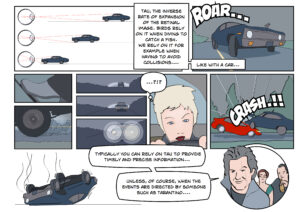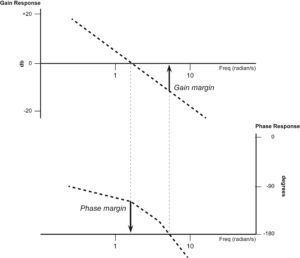
Have you ever become so engrossed in an event that time just flew by? When an hour seemed like minutes? Have you ever been surprised to find that a companion did not share your feelings? That the event that you found to be intensely interesting, she found to be mind-numbingly boring? What to you seemed like moments, seemed to her to be an eternity?
Whose impression was right? What was the real time?
When people experience the same event differently – the differences are said to be subjective biases. The people are not being objective. Obviously, the real time is that measured by the clock. And any experiences that don’t correspond with what the clock specifies must be biased or illusionary.
When our experiences of time don’t correspond with the ticks on a clock; or when our experiences of distance don’t correspond with the ticks on a ruler, conventional wisdom suggests that we have made a mistake, that we are in error – that our experiences are illusions.
Obviously, all the different impressions of the duration of an event by a diverse group of people can’t be real. Only one impression can be right – and that is the impression that is consistent with the objective measurement made with a clock. An hour is an hour. And if the experience does not agree with the ticks of the clock, the experience must be wrong.
I wonder – did time exist before there were clocks?
Clocks and rulers are wonderful inventions. Together they help us to map out our world and to coordinate and synchronize our actions with others. They allow us to plan our days and map out our world – to schedule when and where to join others for work, to share a meal, or to play.
Yes, clocks and rulers are wonderful constructions, but they are constructions non-the-less. They are constructions that were designed specifically to objectify the world, to eliminate the subjective dimensions of experience from the equation.
Conventional wisdom accepts the measures of clocks and rulers as the objective reality. These are some of the tools we use to describe the objective world of matter. But what about peoples’ experiences? If they are not consistent with the objective world of matter – are they real?
Conventional wisdom suggests that there are two choices: EITHER our experiences are an illusionary by-product of matter; OR they may be part of a separate, different reality that we call mind.
But what if conventional wisdom is wrong? What if we have mistaken the map that we constructed with our clocks and rulers as reality? What if our experiences are actually more real than the ticks on the clock?
Are there alternatives to ticks on the clock for thinking about events, durations, and synchronicity? One alternative is the frequency domain - that is characterizing patterns over time as composed of sums of sine waves. For example, insights into the performance of many systems can be gained from examining the frequency response. Many systems exhibit 1/f characteristics and stability of control systems can be inferred from Bode plots that show the frequency response.

Another framework is to take events as the objective reality - and then frame time in event relative terms reflecting timing and windows of opportunity - too soon, too late, too fast, too slow, too short, too long ...

Clocks are useful for coordinating social activities - but maybe we should consider alternative ways to think about how events are experienced by biological systems.

People have studied navigation from an anthropological perspective finding that maps are a very helpful tool for getting around, and coordinating where to meet. But also, there are expert navigators who use the stars and local cues (Ed Hutchins provided a description of navigation in the wild based on these alternative "cognitive systems" - Cognition in the Wild) by Micornesian sailors who never had maps yet could navigate island chains even in poor visibility. Are there any examples of time coordination or time-based behaviours in cultures that do not have clocks? are they any more sophisticated than the position of the sun/moon in the sky? Just curious if you've come across ways that other non-clock cultures design time...